24+ Years Experience
Specialist Epoxy Resin Flooring

Enquire Today For A Free No Obligation Quote
Epoxy resin flooring has become increasingly popular in various industries due to its durability, versatility, and aesthetic appeal. However, traditional epoxy resin flooring practices have raised concerns about their environmental impact. As sustainability becomes a priority in construction and design, there is a growing need for green alternatives in epoxy resin flooring.
The environmental impact of traditional epoxy resin flooring is primarily attributed to the production process and the release of volatile organic compounds (VOCs) during installation. These VOCs contribute to air pollution and have harmful effects on human health and the environment.
To address these concerns, sustainable practices and technologies have emerged in the epoxy resin flooring industry. Utilizing recycled materials in epoxy resin, implementing energy-efficient manufacturing processes, and reducing VOC emissions are among the sustainable practices being adopted. the development of new technologies, such as water-based epoxy resins, biodegradable additives, and renewable resource-based resins, are providing greener alternatives.
The benefits of green options for epoxy resin flooring are vast. They include a reduced carbon footprint, improved indoor air quality, and enhanced workplace safety. Green options also align with environmental regulations and certifications, making them a preferred choice for eco-conscious businesses.
However, it is important to consider the limitations and specific requirements of green options for epoxy resin flooring. Certain green alternatives may have higher costs or necessitate additional maintenance considerations. Therefore, careful evaluation and consultation with experts are essential to determine the most suitable green option for specific project requirements.
The future of sustainable epoxy resin flooring looks promising. With advancements in technology and growing environmental awareness, it is expected that the industry will continue to innovate and develop even more sustainable solutions. Green options for epoxy resin flooring are set to play a crucial role in creating a more sustainable and eco-friendly built environment.
Epoxy resin is a durable and versatile material commonly used for flooring applications. It is a thermosetting polymer that is created by mixing resin and a hardener. Once cured, epoxy resin forms a strong, chemical-resistant, and glossy surface. It is popular in various industries due to its excellent adhesion properties, low maintenance requirements, and ability to withstand heavy traffic and harsh environments. Whether used in commercial or residential settings, epoxy resin flooring offers a seamless and attractive floor finish that is easy to clean and long-lasting. For those interested in learning more, exploring epoxy resin flooring options is recommended.
Epoxy resin flooring is popular due to its durability, versatility, and aesthetic appeal. Several factors contribute to its popularity:
Considering these factors, it’s not surprising that epoxy resin flooring remains popular in various industries and applications. Whether it’s for durability, easy maintenance, or aesthetic appeal, epoxy flooring continues to be a sought-after choice for many property owners.
In the realm of epoxy resin flooring, there is an increasing demand for environmentally friendly options that prioritise sustainability. This article discusses the pressing need for green practices and technologies in epoxy resin flooring, focusing on the environmental impact of traditional epoxy resin flooring and the reasons why finding eco-friendly alternatives is vital. We will delve into the facts, figures, and events that highlight the urgency of adopting greener practices and technologies in this field.
Traditional epoxy resin flooring has a significant environmental impact due to the materials and processes used in its production. The production of epoxy resins involves the extraction and processing of petrochemicals, which contribute to air and water pollution. The installation process releases harmful volatile organic compounds (VOCs) into the air, which can have negative effects on indoor air quality. The disposal of epoxy resin flooring also poses a challenge, as it is not biodegradable and can contribute to landfill waste. These environmental concerns highlight the need for sustainable alternatives in the epoxy resin flooring industry.
Are you in search of sustainable options for epoxy resin flooring? Well, look no further! This section delves into the realm of sustainable practices, uncovering how the utilization of recycled materials in epoxy resin, energy-efficient manufacturing processes, and the reduction of volatile organic compounds can revolutionise the flooring industry. Prepare to explore the newest environmentally friendly technologies that are transforming epoxy resin flooring, creating a visually pleasing and eco-conscious solution.
Using recycled materials in epoxy resin flooring is an effective way to promote sustainability and reduce environmental impact. By incorporating recycled materials, such as post-consumer or post-industrial waste, into the production process, the need for new raw materials is minimised, resulting in energy and resource conservation. The use of recycled materials in epoxy resin flooring helps divert waste from landfills and prevents the extraction of virgin materials. Companies that prioritise the use of recycled materials contribute to a circular economy and demonstrate their commitment to environmental stewardship. Fact: Epoxy flooring manufacturers can incorporate up to 80% recycled content in their products, significantly reducing their carbon footprint.
Energy-efficient manufacturing processes are essential for sustainable epoxy resin flooring. Here are some examples of these processes:
By adopting these energy-efficient practices, manufacturers can reduce their carbon footprint and contribute to a more sustainable epoxy resin flooring industry.
Reducing Volatile Organic Compounds (VOCs) is an essential aspect of sustainable epoxy resin flooring . VOCs are harmful chemicals that can be emitted into the atmosphere by traditional epoxy resin products, leading to poor indoor air quality and environmental pollution. To address this issue, manufacturers have developed eco-friendly alternatives. These green options utilise low VOC or VOC-free formulations, minimising the release of harmful chemicals during the installation and lifespan of the flooring. By reducing VOCs , sustainable epoxy resin flooring promotes a healthier indoor environment and contributes to overall environmental conservation.
Discover the latest sustainable technologies in epoxy resin flooring. Explore the advancements in water-based epoxy resins, biodegradable additives, and renewable resource-based resins. Experience the exciting possibilities these innovations bring to the realm of environmentally friendly flooring solutions. Let’s delve into how these technologies are reshaping the landscape of epoxy resin flooring, paving the way to a greener and more sustainable future.
Water-based epoxy resins are a sustainable and environmentally friendly alternative to traditional epoxy resin flooring. Here are some key points to consider about water-based epoxy resins:
Water-based epoxy resins provide a sustainable and efficient solution for epoxy resin flooring while maintaining high quality and performance standards.
Biodegradable additives play a crucial role in creating sustainable epoxy resin flooring. These additives contribute to the eco-friendliness of the flooring system by promoting decomposition and reducing waste. Their purpose is to gradually break down, thereby minimizing their impact on the environment. Biodegradable additives are commonly incorporated into epoxy resin formulations to enhance the material’s biodegradability and reduce the release of harmful substances. By incorporating these additives, epoxy resin flooring becomes more sustainable and aligns with green building practices. When choosing epoxy resin flooring, it is important to prioritize products that utilise biodegradable additives in order to minimise environmental impact. Pro-tip: Look for epoxy resin flooring products that contain biodegradable additives to ensure a more environmentally friendly flooring solution.
Renewable resource-based resins are a sustainable alternative to traditional epoxy resin flooring materials. Here are some key points to consider:
The development of renewable resource-based resins has gained momentum in recent years due to increasing environmental concerns and the demand for sustainable building materials. This innovation in epoxy resin flooring has paved the way for greener and more eco-friendly options in the construction industry.
Epoxy resin flooring offers numerous benefits in comparison to traditional flooring options, particularly when utilizing sustainable and environmentally friendly practices. The following are some of the key advantages of opting for green epoxy resin flooring:
Fact: While there may be some considerations and limitations, choosing a green epoxy resin flooring option can contribute to a more sustainable and environmentally-friendly space.
The future of sustainable epoxy resin flooring is promising, thanks to advancements in technology and practices that are driving positive change in the industry. Bio-based epoxy resins, derived from renewable sources such as plant oils, are gaining popularity due to their reduced environmental impact. Water-based epoxy coatings are also becoming more common as they eliminate the need for harmful solvents and reduce VOC emissions. Recycling and reusing epoxy materials is another area of focus, which helps to minimise waste and promote circularity. Additionally, incorporating sustainable design features, such as natural and recycled materials, in flooring systems further enhances the sustainability of epoxy resin flooring options.
Some green options for epoxy resin flooring include bio-based epoxy resin floors, which are made from renewable resources and have a reduced carbon footprint, as well as resin flooring that has achieved high sustainability ratings and environmental product declarations.
Using bio-based epoxy resin floors provides several environmental benefits. These floors are made from renewable resources, reducing their carbon footprint and greenhouse gas emissions. They can also be recycled at the end of their life cycle, supporting a circular economy.
Epoxy resin floors offer versatile solutions for creating visually appealing commercial spaces. They can be customized in various colors, styles, effects, and decorative options, bringing color and a modern look to any environment.
Epoxy resin floors have practical applications in commercial environments such as decorative public areas, heavy-duty manufacturing plants, and food preparation areas. They provide long-term performance, high chemical resistance properties, and are easy to clean and maintain.
Choosing epoxy resin floors as a sustainable flooring option offers competitive advantages. Businesses can attract environmentally conscious customers and differentiate themselves from competitors by investing in sustainable materials. These floors also offer long-term cost savings as they require less frequent replacement and maintenance compared to traditional flooring materials.
For inspiration and samples of epoxy resin flooring options, Altro offers case studies and free samples that can be ordered online. They also provide a handy guide and technical chart to help customers select the right resin system for their specific needs.
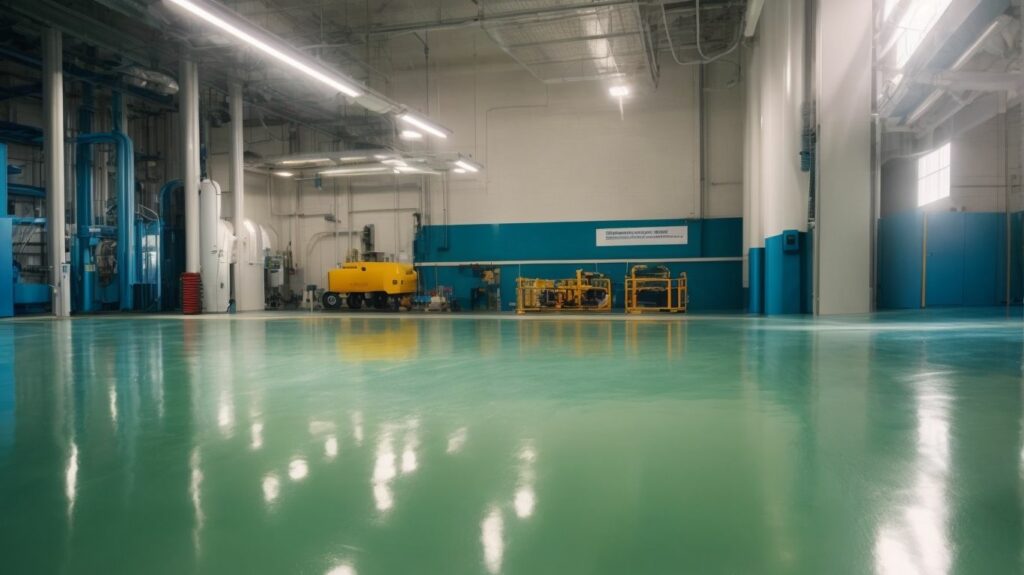
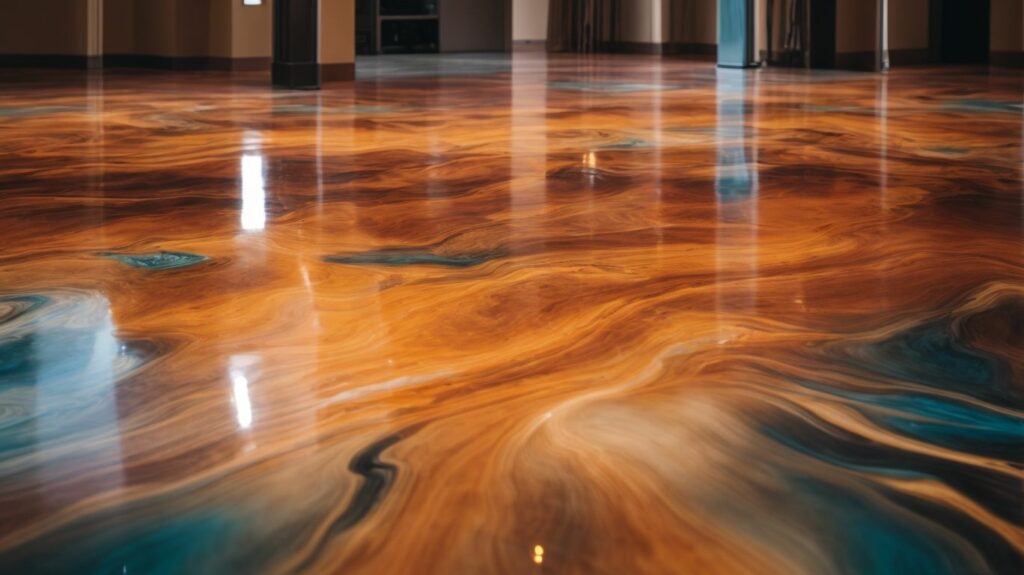
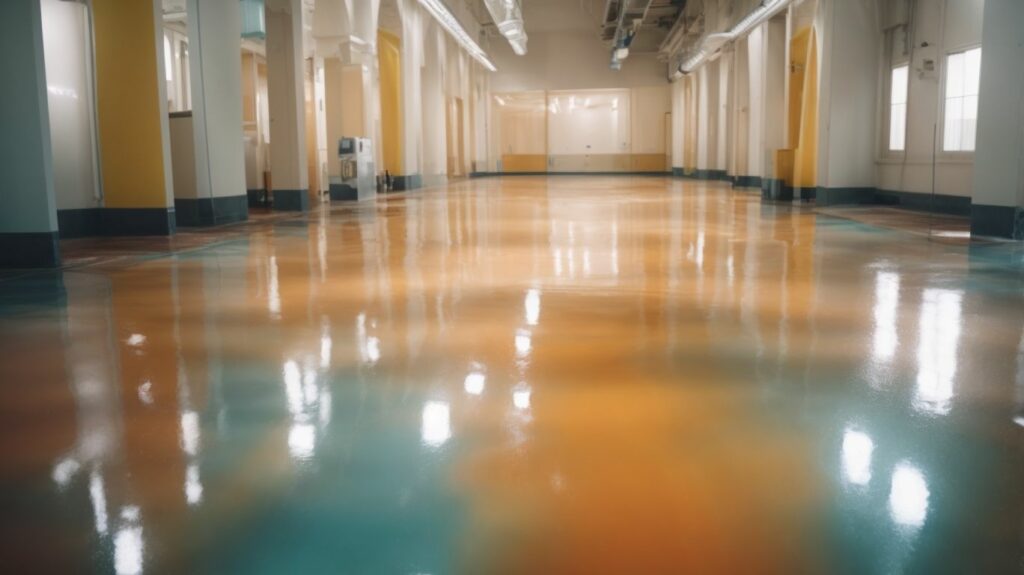


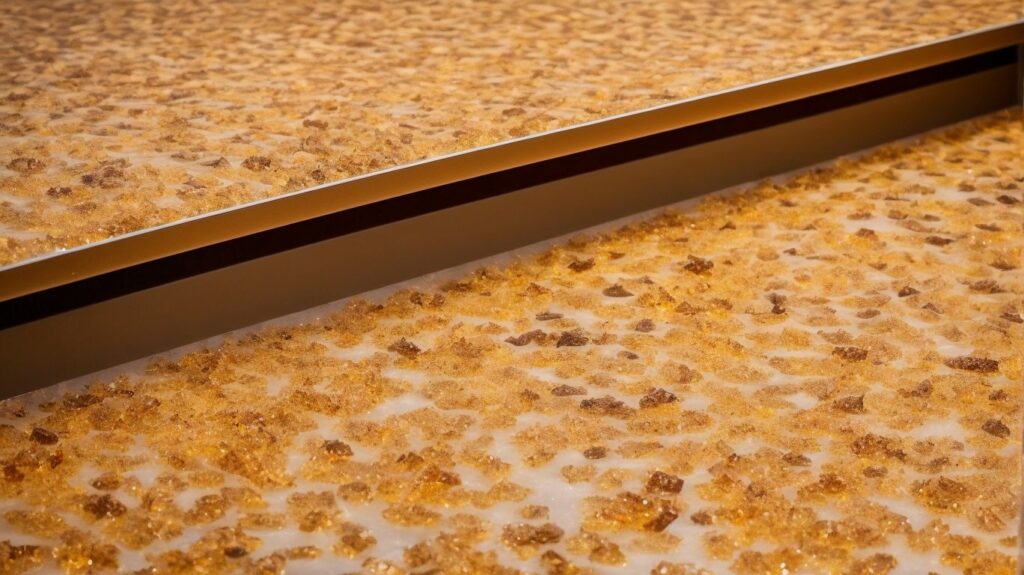

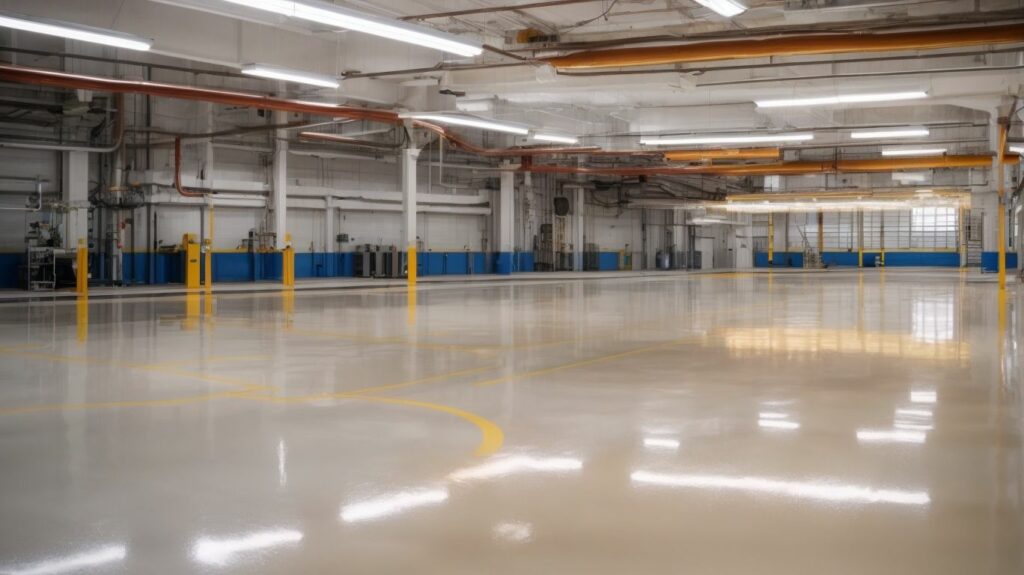
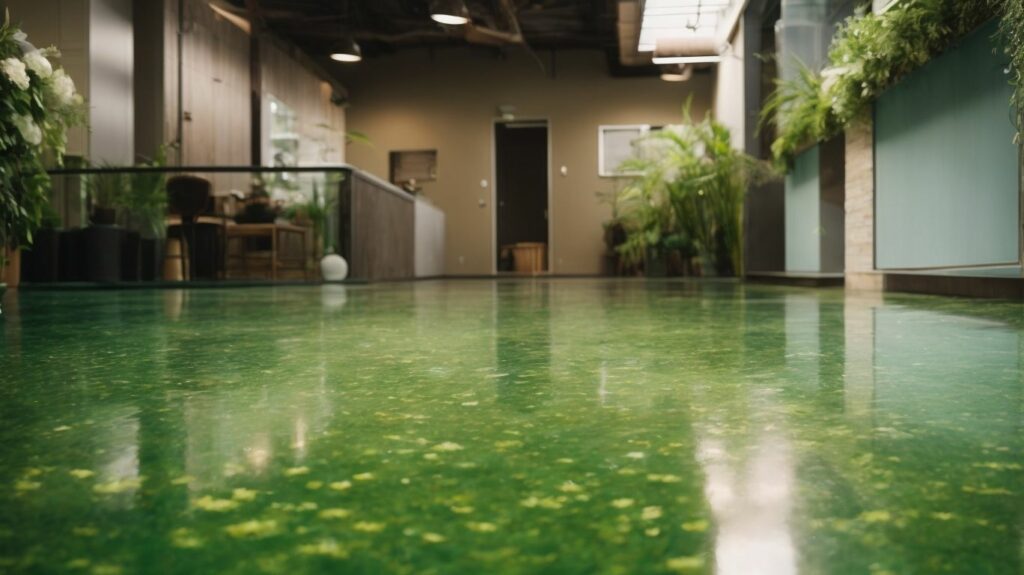

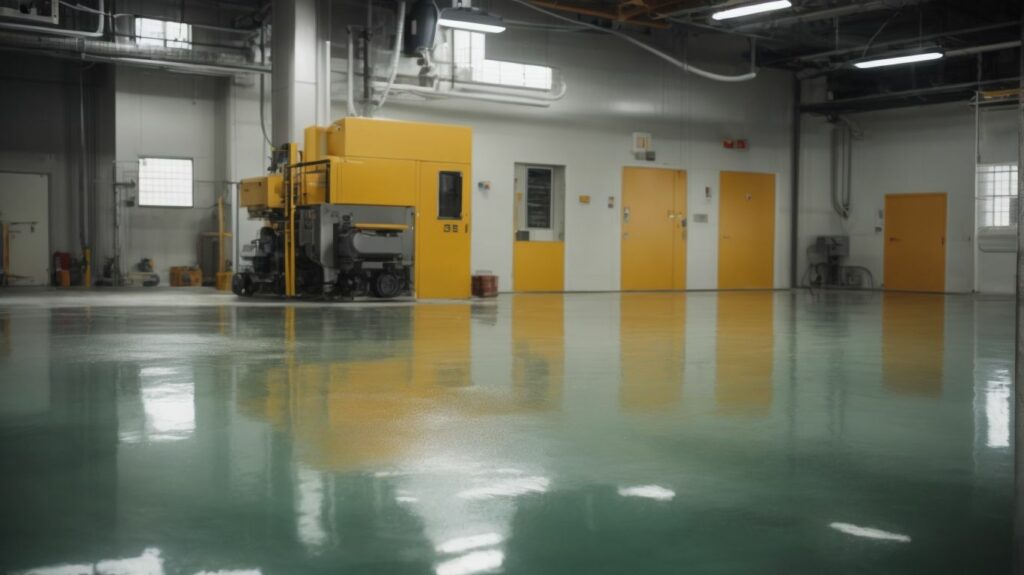
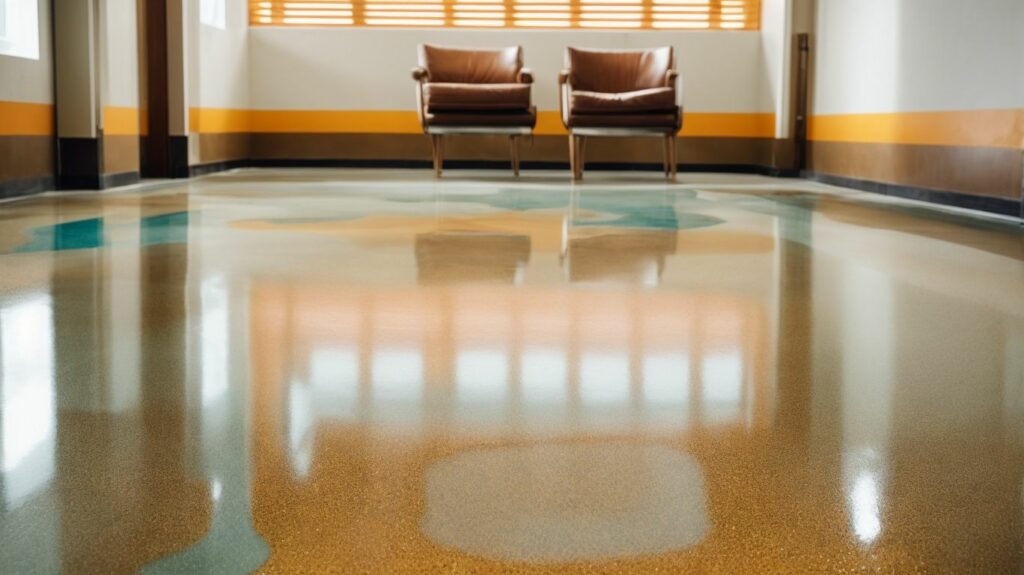
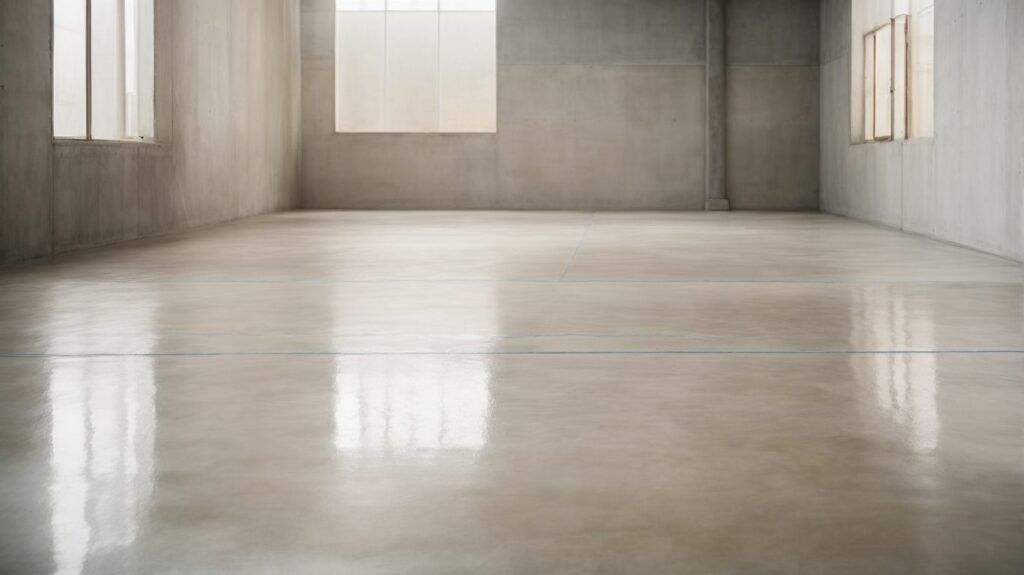


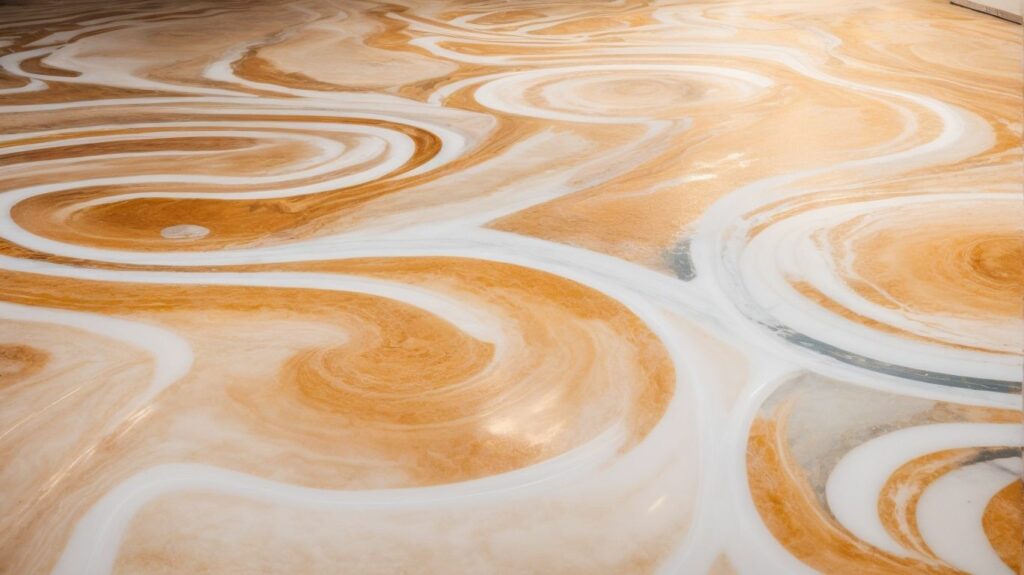

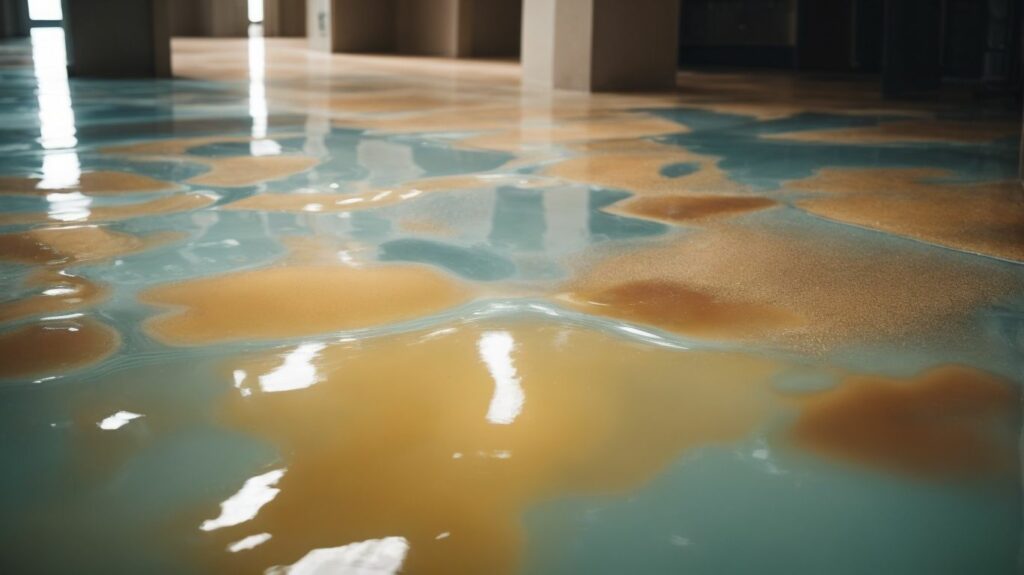
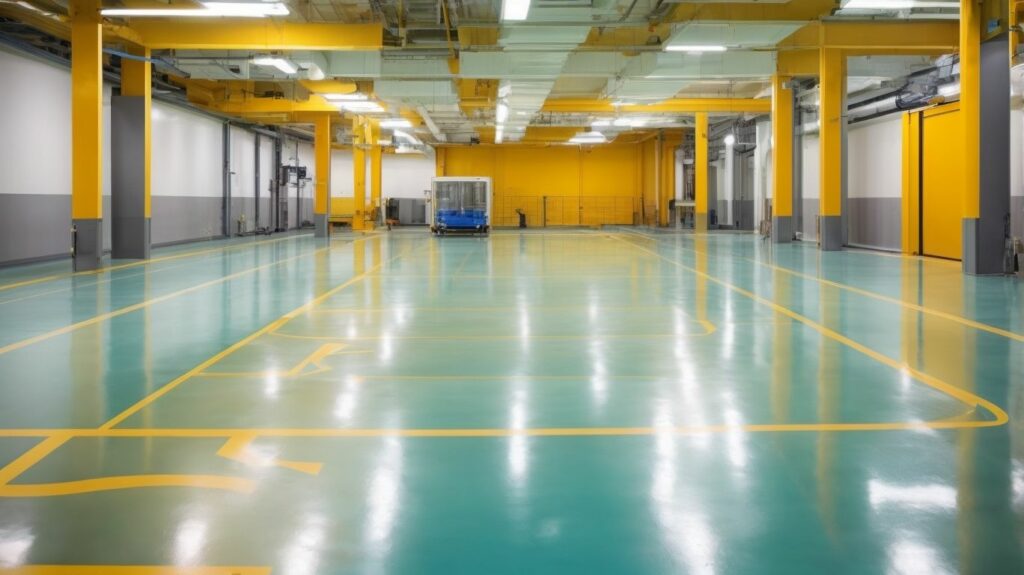
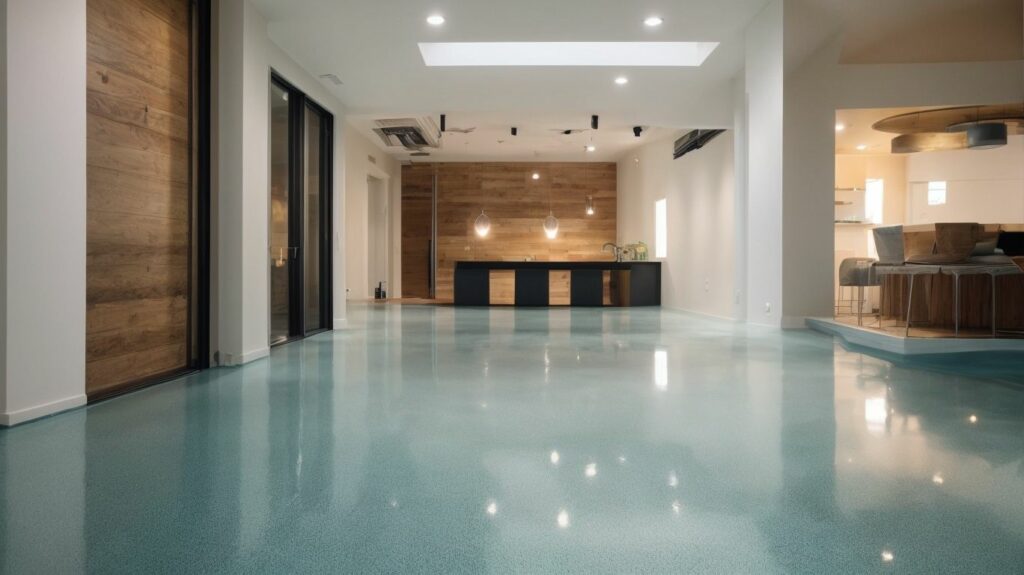

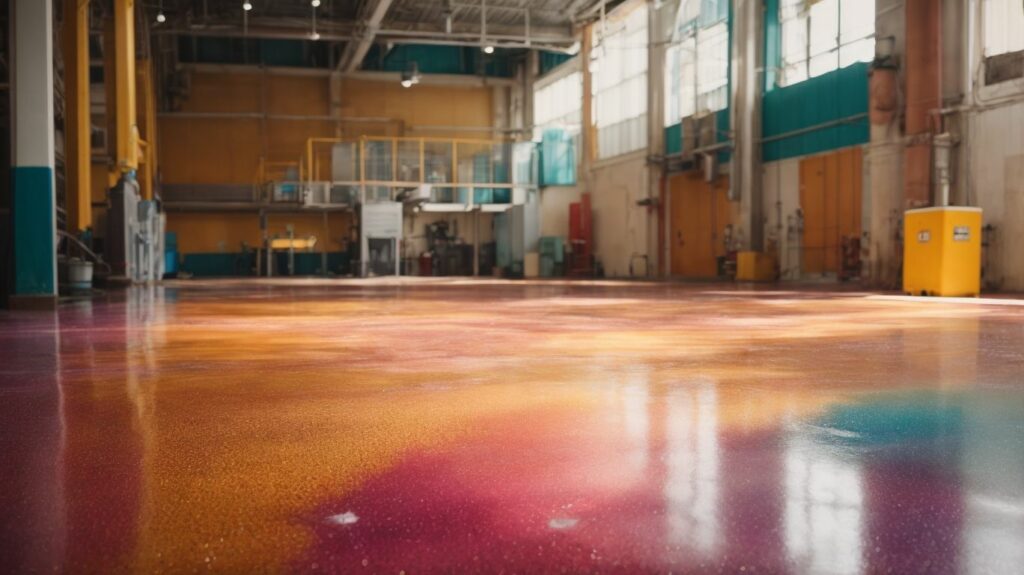
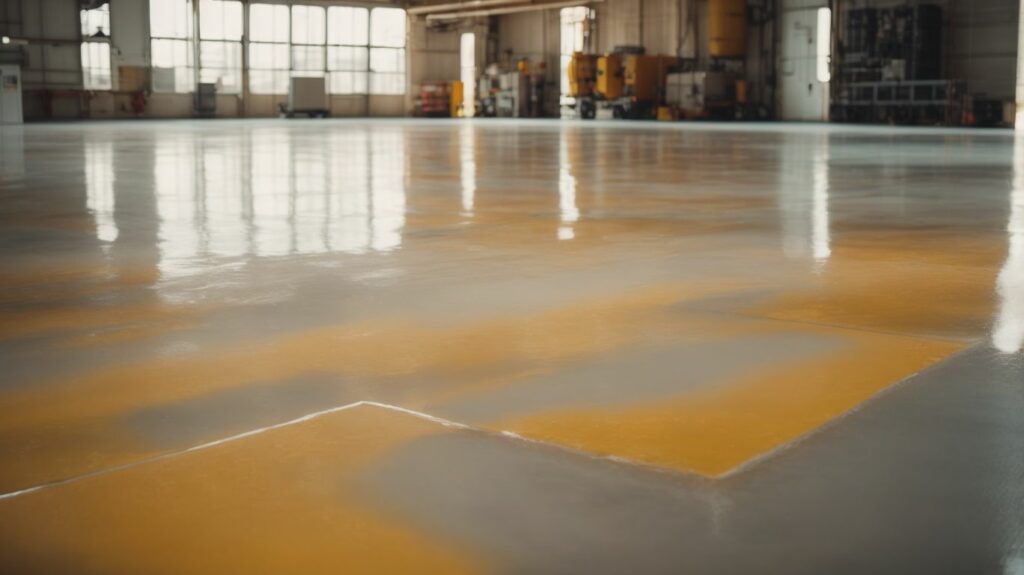
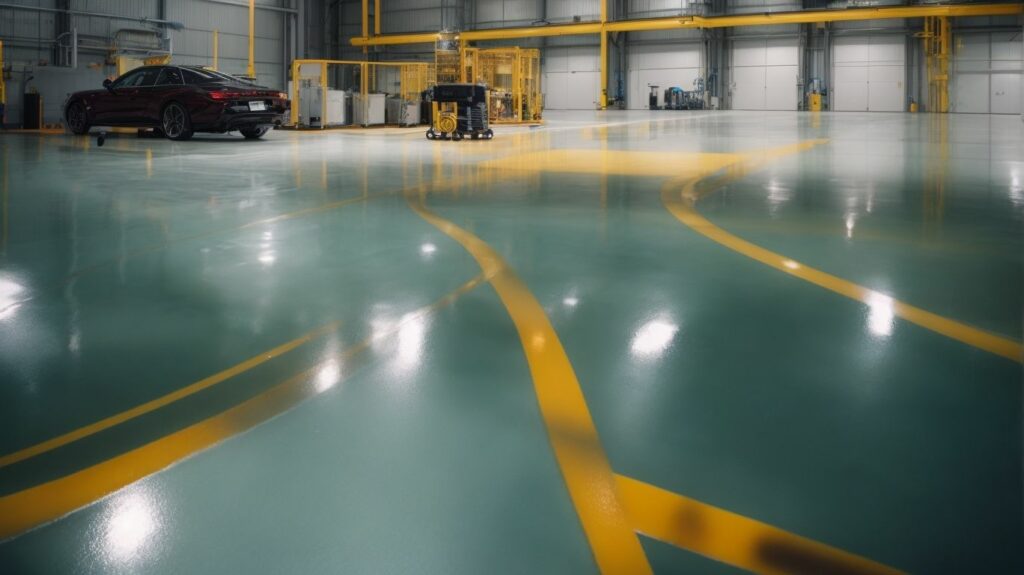

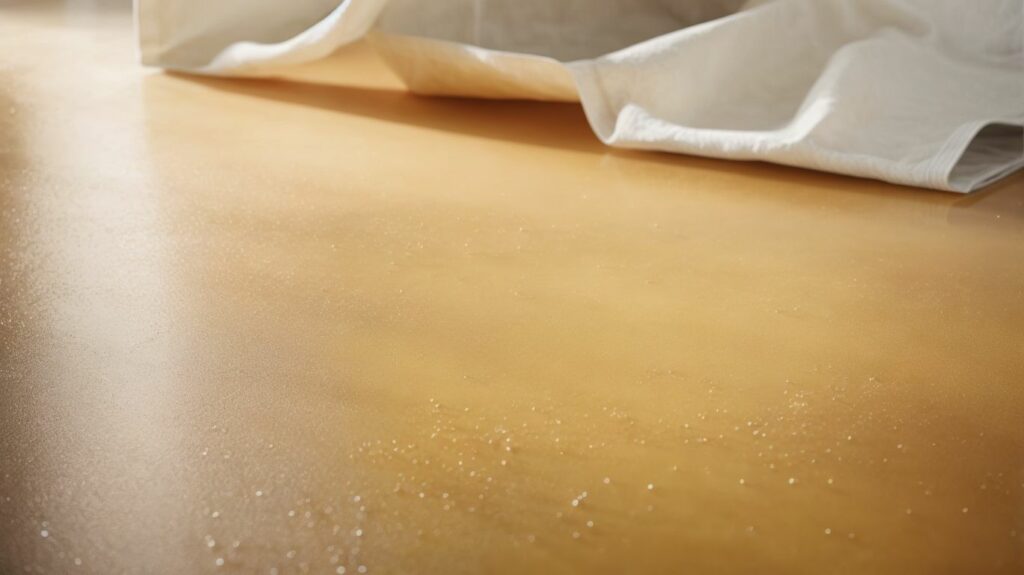

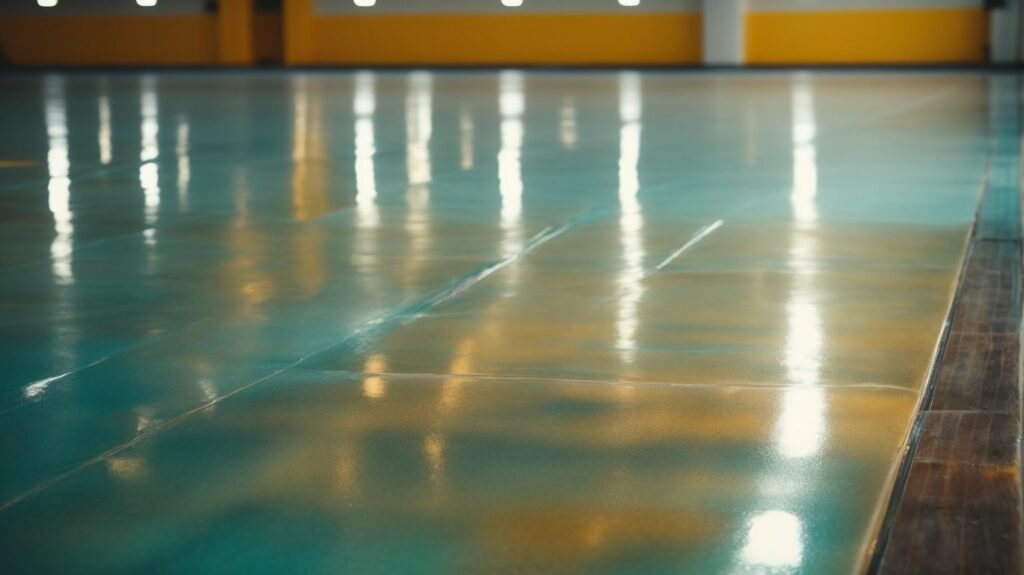


We Aim To Reply To All Enquiries With-in 24-Hours